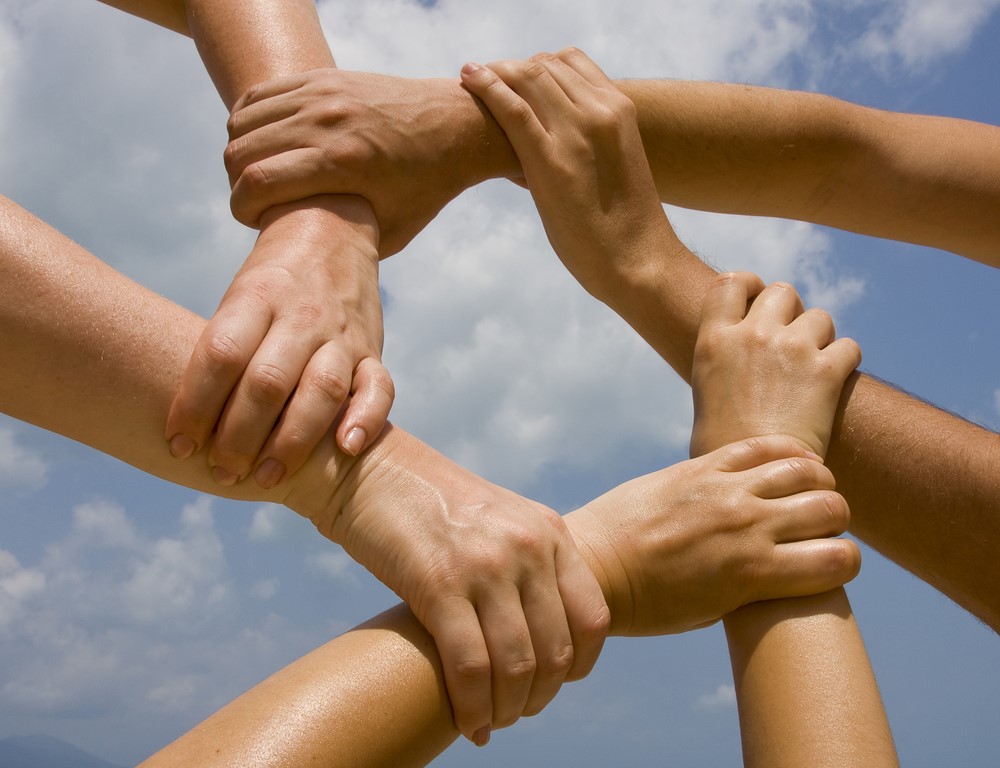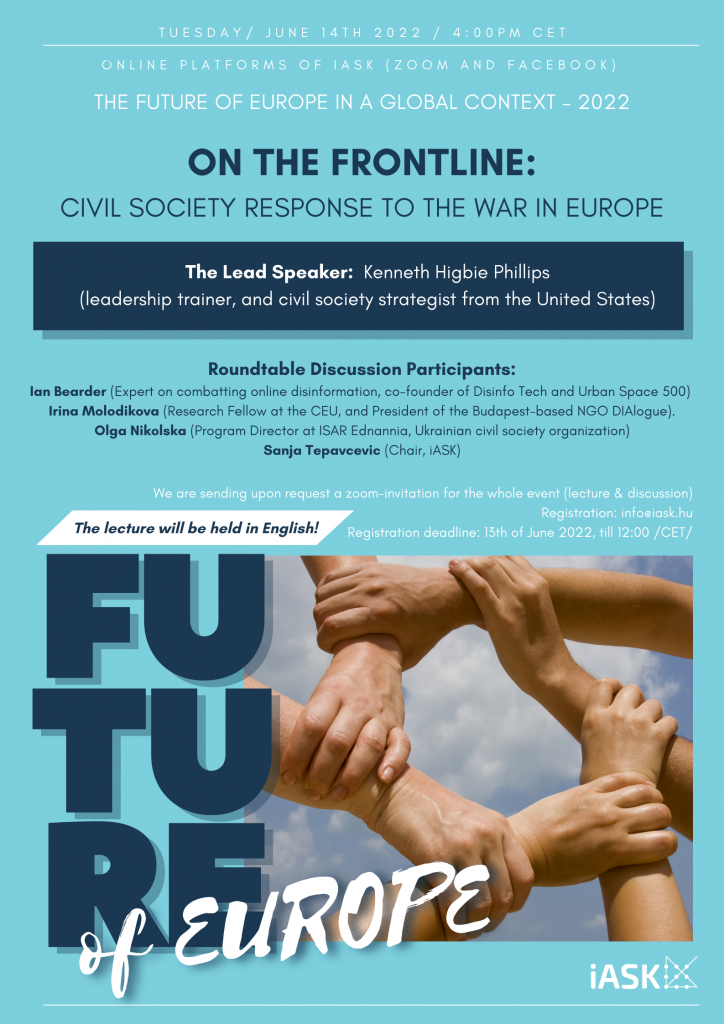Research & Studies


On the Frontline: Civil Society Response to the War in Europe
iASK: The Future of Europe in a Global Context Series
Tuesday / June 14th/ 4pm CET / Zoom and Facebook
The Russia-Ukraine war has created one of the biggest refugee crises in Europe since World War II with over 5 million Ukrainians displaced over the period of just two months. While the EU member states made flexible migration regulations for the Ukrainians to allow them legal and safe stay in the EU, civil society organisations have been on the frontline at borders in the neighbouring countries supporting evacuations from the conflict zone, raising funds, lobbying governments, and providing instant relief. This roundtable debate gathers speakers from civil society organisations and individuals who actively participate in providing support to civilians in Ukraine and to Ukrainian refugees outside. It focuses on the discussion about the future of Europe from the perspective of civil society in the context of the interlinked crises caused by the armed conflict in Ukraine.
Moderator: Sanja Tepavcevic (iASK Fellow) has held positions at the CEU, Budapest, the Budapest Business University and Eötvös Lóránd University. She is a member of the Budapest-based NGO “Dialogue” and was an external associate of the Croatian Institute of European and Globalization Studies. She has a diploma in Journalism from Moscow State University, an MA in International Relations and European Studies, and a PhD in Political Science from the CEU. Her research includes Russian and Ukrainian foreign policy, post-Soviet migrations and immigrant entrepreneurship, and foreign economic policies of former Yugoslav states and V4 countries.
Speakers:
Kenneth Higbie Phillips is a leadership trainer, and civil society strategist from the United States and for 60 years has worked with NGOs around the world. He is a mentor at NGO Futures LLC, and author of the 3- volume The Civil Society Series. He has decades of experience as a leader, manager, fundraiser and mentor at AIESEC, the Institute of International Education, Save the Children, PLAN International, the International Federation of Red Cross and Red Crescent Societies, and consulting with NGOs in many countries. Since the early 1990’s he has visited Ukraine, Romania and Poland regularly to assist civil society organizations there.
Ian Bearder lives in Kyiv, Ukraine. He received his MA in European Politics at the Corvinus University of Budapest, Kőszeg Campus. He is the founder and CEO of the software company Veedoo. In 2016, he founded “Runday”, that organizes free weekly running events in 7 cities for 4000 members. In 2017, he co-founded Disinfo Tech, Kyiv. A lot of his work focuses on combatting online disinformation. In 2017, he also co-founded “Urban Space 500”, establishing a social/cooperative restaurant that reinvests 80% of its profits to aid social projects aimed at city development, bringing together 500 active citizens.
Irina Molodikova is a Research Fellow at the CEU, and President of the Budapest-based NGO DIAlogue. She volunteers at the Gimnazium that provides free education to refugee Ukrainian children. Irina holds a PhD in Social Geography from Moscow State University, and an MA in Peace and Conflict Studies from the European Peace University, Austria. Her main research interests are migration and demography in the former Soviet space.
Olga Nikolska, Program Director at ISAR Ednannia, Ukrainian civil society organization. It annually provides financial support to up to 500 organizations from all oblasts of Ukraine. She oversees the direction of the Culture of Philanthropy Development in the organisation. Her role at Ednannia is to promote philanthropy including, but not limited to supporting city-based community foundations working with NGOs.